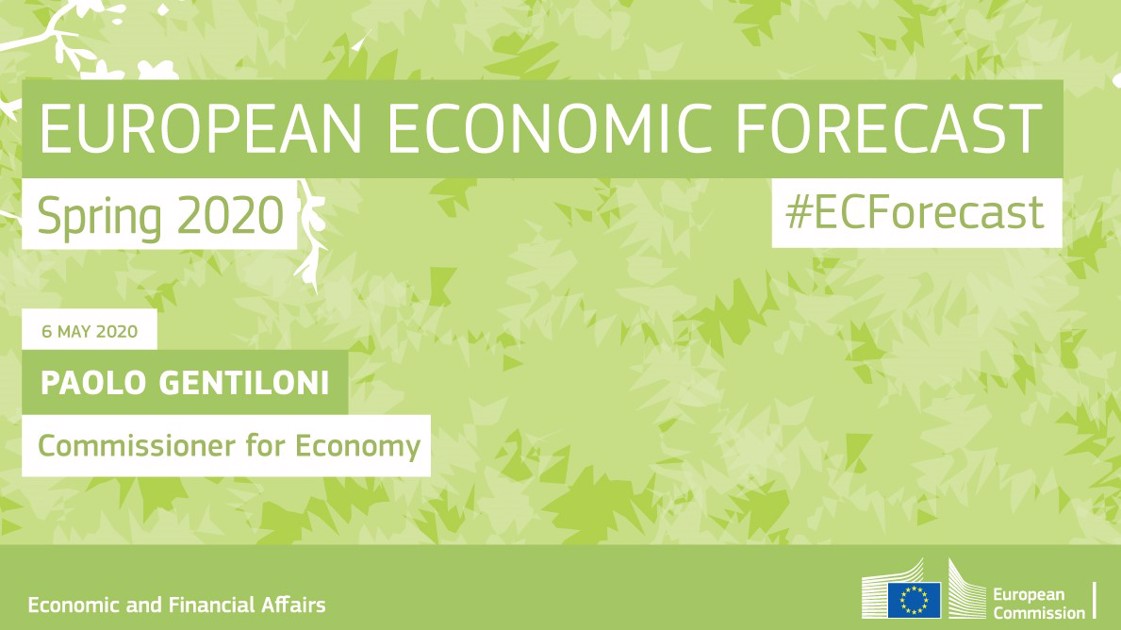The depth of this recession requires bold, ‘whatever it takes’ responses. Europe now needs a coordinated, large-scale economic recovery strategy that focuses on rebuilding and strengthening industrial value chains.
In its Spring 2020 Economic Forecast, published on 6 May, the European Commission is painting a grim picture for the EU economy. It predicts “a recession of historic proportions this year”.
While global GDP is projected to contract by about 3% this year, the pandemic and the containment measures it has necessitated are taking a particularly heavy toll on the European economy. Economic activity dropped by around one-third almost overnight. The corona crisis struck when the EU economy was already slowing down, with even negative growth for industrial production. Indeed, economic growth in the eurozone stood at only 1,2% in 2019, down from the post-crisis high of 2,7% in 2017.
In its spring forecast the European Commission estimates that EU output will fall 7,4% this year and grow by 6,1% in 2021 in their most optimistic scenario. This is the steepest decline in the history of the EU. The financial crisis in 2008-9, by comparison, made the EU economy shrink by 4,5%.
The unemployment rate of the EU is expected to rise from 6,7% in 2019 to 9,0% in 2020. In numbers this represents an increase from 14,4 million jobless to 19,6 million - an increase by 5,2 million unemployed in one year. These figures do not even include the short-time unemployed. To compare, during the 2008-9 financial crisis, 4 million jobs disappeared in the 5 years between 2008 and 2013.
Sectors most affected by the severe economic shock provoked by COVID-19 are in the first place those that were hit directly by containment measures such as personal services, retail, travel, hospitality and tourism. However, the lockdowns have also deeply disrupted supply chains in industrial sectors as aerospace, automotive, steel, shipbuilding, textiles. There is a danger that COVID-19 will leave these sectors deeply scarred as they risk being confronted with permanent destruction of capital, loss of industrial capabilities, know-how and skills.
COVID-19 is affecting EU Member States differently. The employment situation in 2020 is projected to be particularly dramatic in France (-9,1%), Spain (-8,7%) and Italy (-7,5%) while Germany, Belgium, Austria and Denmark might lose less than 2% of total jobs. The European Commission warns that such divergent developments could severely distort the single market and threaten the stability of the economic and monetary union.
Luc Triangle, industriAll Europe’s General Secretary comments:
“The depth of this recession requires bold, ‘whatever it takes’ responses and we cannot afford to lose time. There is an urgent need to put in place a coordinated and large-scale post pandemic recovery strategy that focuses on rebuilding and strengthening industrial value chains.”
“The mobilisation of public and private investments to support the twin transition to a digitalised and low-carbon economy will be key. The Green Deal, the Digital Strategy, the recently approved industrial strategy and the principle of a just transition that leaves no worker and no region behind, should constitute the foundations for the strategy. Europe’s recovery must be social, green and smart!”
“European economies are interdependent and industrial value chains do not have borders. This requires a coordinated European response and common solutions to benefit all countries, especially the most affected. Combating COVID-19 will represent an unprecedented test for European unity and solidarity” Luc Triangle concluded.
Contact: Andrea Husen-Bradley press and communication, Guido Nelissen senior adviser for industrial policy
